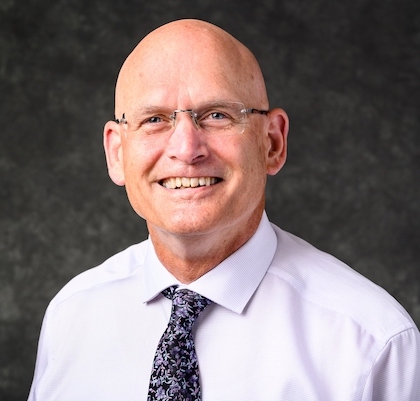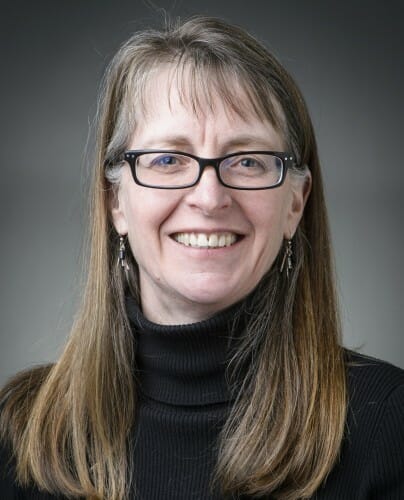Latest round of Research Forward supports cross-campus collaborations and diversity
Sixteen projects have been selected for funding in the second round of Research Forward, a program to stimulate innovative and groundbreaking research at UW–Madison that is collaborative, multidisciplinary and potentially transformative.
The winning projects were chosen from 96 proposals submitted by applicants across campus. They range from establishing a Microbial Natural Products Discovery Hub, to probing the origins of the universe, to examining the negative effects of poverty on adolescent academic success, to developing a new type of anti-tumor vaccine that can be used to treat cancer.
The Research Forward initiative is sponsored by the Office of the Vice Chancellor for Research and Graduate Education and is supported by the Wisconsin Alumni Research Foundation, which provides funding for one or two years, depending on the needs and scope of the project. Some of the projects that have been funded have the potential to fundamentally transform a field of study.

Steve Ackerman Photo: Jeff Miller
“Research Forward encourages collaboration among campus PIs, enhances PhD student and postdoc training, and strengthens our external grant funding requests,” says Steve Ackerman, vice chancellor for research and graduate education. “The projects we selected are truly forward-looking and use innovative approaches and tools such as state-of-the-art machine learning methods, 3D printing techniques and geostationary satellites.”
Amy Wendt, associate vice chancellor for research in the physical sciences, notes that project teams in Round 2 were also asked to submit diversity, equity and inclusion plans as part of their research proposals. Submitted DEI plans include gender and racial/ethnic diversity on project teams, recruiting graduate students and community research participants from underrepresented and underserved groups, and supporting diverse research backgrounds and cross-disciplinary teams.

Amy Wendt Photo: Bryce Richter
“Many of the project teams are diverse in their academic and demographic backgrounds,” Wendt says. “Some team members have a demonstrated record of prioritizing and advancing DEI, including through service work in their departments and academic fields. Having scientists and trainees with diverse backgrounds and life experiences working together brings different perspectives to the table as we address complex scientific problems. When we remove barriers to increased participation by members of underrepresented groups, we enhance public trust in our research.”
Subject matter experts reviewed each proposal to identify those that held the most promise for meeting the goals of the Research Forward initiative. Based on the reviews, divisional faculty subcommittees then made recommendations to OVCRGE.
Research projects and principal investigators:
- Backbone-modified Peptides as Cancer Vaccine Antigens, Sam Gellman, professor of chemistry. The goal of this research is to develop a new type of anti-tumor vaccine that can be used to treat cancer.
- Creating “Button-Snap Latching” to Make Artificial Materials Inspired by Membrane Biology, Padma Gopalan, professor of materials science and engineering. Button-Snap Latching could enable next generation bandages, body sensors and other smart materials.
- Development of 3D-Printed Piezoelectric Stents with Self-Powered Anti-Restenosis Properties, Bo Liu, professor of surgery. This project seeks to propose a stent that has self-generated electrical potential that can resist cell buildup without the need for drugs.
- Harnessing Microbial Ecology for Broad-Spectrum Antiparasitic Discovery, Mostafa Zamanian, assistant professor of pathobiological sciences. This project’s purpose is to discover next-generation anti-parasitics as a new treatment option to counter emerging drug resistance.
- Investigations of Solar System Ices, Lucas Zoet, associate professor of geosciences. Ice researchers from different disciplines will be organized to take advantage of the world-class instrumentation in existence at UW–Madison.
- Leveraging a Longitudinal Study in Pet Dogs to Model Non-Occupational Chemical Risk for Non-Hodgkin Lymphoma, Lauren Trepanier, professor of medical sciences. The researchers will measure exposures to weed killers and household chemicals to uncover risks for lymphoma in dogs.
- Measuring Land Surface Carbon Uptake in Real Time Using Geostationary Satellites, Paul Stoy, associate professor of biological systems engineering. This project involves using weather satellites to gather data in support of creating a center of excellence in real-time carbon cycle monitoring at UW–Madison.
- Measuring the Pulse of Wisconsin: A Feasibility Study to Develop an Online Research Panel of Wisconsinites, Jennifer Dykema, associate professor of sociology. This project addresses a need for accurate, affordable and current data about Wisconsin residents’ attitudes and behaviors.
- Microbial Natural Products Discovery Hub, Katrina Forest, professor of bacteriology. A new facility dedicated to elucidating chemical structures with, and for, microbiologists will accelerate antibiotic discovery — leading to useful drugs benefitting human health.
- Multi-Material Additive Manufacturing of Electrical Machines, Frank Pfefferkorn, professor of mechanical engineering. The results of this project could reshape the landscape of electric machines and bring about a new design and manufacturing paradigm that will help accelerate reduction of the carbon footprint in transportation.
- Multiscale Photonic Structures for Complete Opto-Electronic Control of Light, Victor Brar, assistant professor of physics. This project will lead to creation of a crucial electrical component for holographic displays, high-resolution biomedical imaging, and laser-based range finders valuable for self-driving cars.
- Precision Pollination: A Low-Cost, Scalable Device for Monitoring Pollinators and Pollination Services Using Deep Learning, James Crall, assistant professor of entomology. This technology has the potential — through a small, battery-powered device — to transform the study of pollinators and the critical role they play in supporting crop yields and biodiversity.
- Programmable, Pro-Regenerative Immune Cell Therapies for Neurodegeneration and Brain Injury, Krishanu Saha, associate professor of biomedical engineering. This project develops a new concept to treat brain disorders, injuries and aging via cell therapy — with potential applications in the treatment of Alzheimer’s disease and Parkinson’s disease.
- Reducing the Negative Effects of Poverty on Adolescent Academic Success, Seth Pollak, professor of psychology. This project seeks to understand the neurodevelopmental mechanisms through which stable housing can reduce some of the negative effects of poverty on children.
- Reconstructing the Big Bang with Physics-Guided Machine Learning, Moritz Muenchmeyer, assistant professor of physics. Physicists and computer scientists will develop a new technique to look back in time and reconstruct what happened at the Big Bang, aided by recent developments in machine learning.
- Towards a Mechanistic Understanding of How Bile Acids Modulate Gut Microbiome Composition and Function, Daniel Amador-Noguez, associate professor of bacteriology. The overarching goal of this project is to establish causal relationships between the bile acid pool and the gut microbiome composition.
